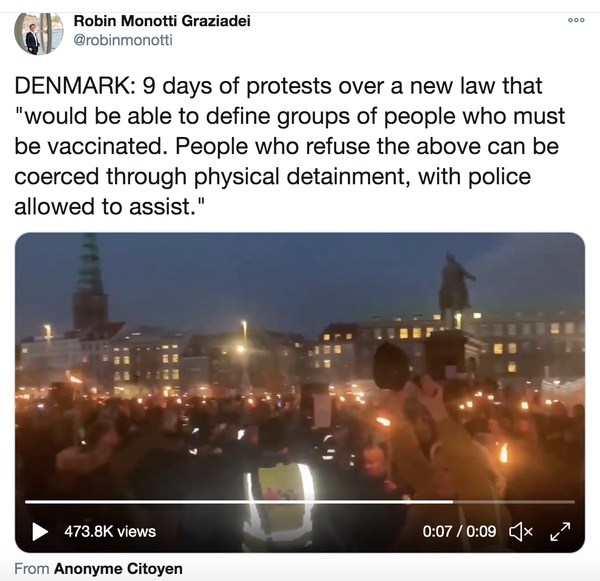The new ‘epidemic law’ (epidemilov) would replace an emergency law passed in the spring that gave the government extended powers to intervene in society in order to fight the Covid-19 pandemic.
(ER: See this March article explaining the emergency law passed in the spring, titled Denmark rushes through emergency coronavirus law )
As well as enforcing quarantine measures, the existing law empowers the authorities to prohibit access to public institutions, supermarkets and shops, public and private nursing homes and hospitals, and also to impose restrictions on access to public transport.
Recent instances in which the emergency law has been used by the government to implement rules include the partial lockdown of North Jutland and enhanced national restrictions, including assembly limits and mandatory use of face masks, announced in October.
The emergency (and temporary) law from March is now up for a replacement by a new, more permanent law, which would also ensure provisions for governments to respond to future epidemics and pandemics.
The end of the hearing period for the new law means that other parties and the public have been able to study the proposed law and raise their own concerns, so the final version of the proposed law may be different from the one currently in circulation.
You can read the proposed law in full (in Danish) in its current form via the government website.
Some areas in the proposed law that have raised eyebrows include:
- People infected with dangerous diseases can be forcibly given medical examination, hospitalised, treated and placed in isolation.
- The Danish Health Authority would be able to define groups of people who must be vaccinated in order to contain and eliminate a dangerous disease.
- People who refuse the above can – in some situations – be coerced through physical detainment, with police allowed to assist.
Medics have voiced their concern that the proposed law will give the government too much power over healthcare, as reported today by DR.
“We think these are regulations that go too far and ought to be changed,” Camilla Rathcke, head of the Danish Medical Association, told the broadcaster, adding that such power in the hands of authorities could feel as though it was “overstepping boundaries” for individual patients.
The association believes that mandatory vaccination should be an “absolute last resort” and expressed its concern for patients’ legal rights, DR writes.
Additionally, the law leaves the decision of when a disease is dangerous enough to bring the epidemic law into use solely in the hands of the health minister. Although an advisory commission can be involved, the government does not have to follow its advice.
“We don’t suspect a minister to have bad intentions. But decisions on emergency situations need broad parliamentary support,” Anders Beich, head of the Danish College of General Practitioners, told DR.
Meanwhile, the law also enables major decisions to be made on the basis of a ‘principle of caution’, or forsigtighedsprincip, without conclusive scientific evidence. This has already occurred under the emergency law, when the government decided to cull millions of minks due to evidence – not conclusive – that a mutation of the coronavirus in the animals could risk the effectiveness of a future virus.
“The larger the intervention in public rights, the larger certainty there should be over the effect of it,” Louise Holck, director of the Danish Institute for Human Rights, told DR.
A further criticism of the proposed law is that it could force businesses and organisations to hand over information about staff and members to authorities, such as information regarding individuals’ movements.
CONTINUE READING HERE
Denmark’s Proposed ‘Epidemic Law’ Getting Days of Public Protest
















